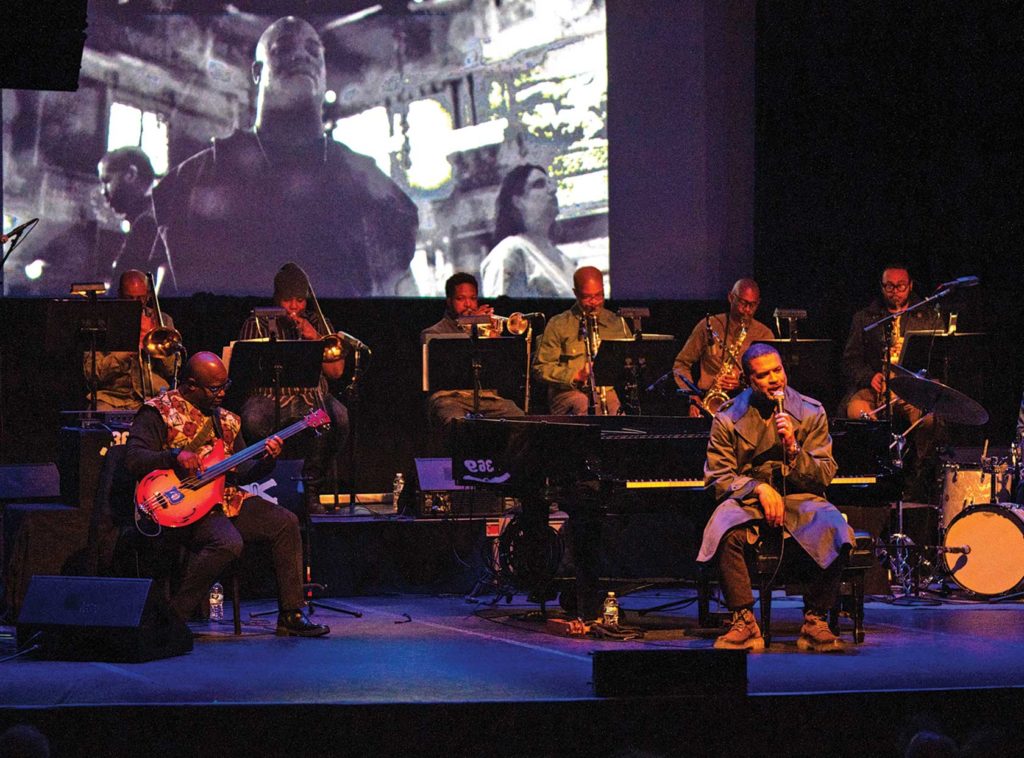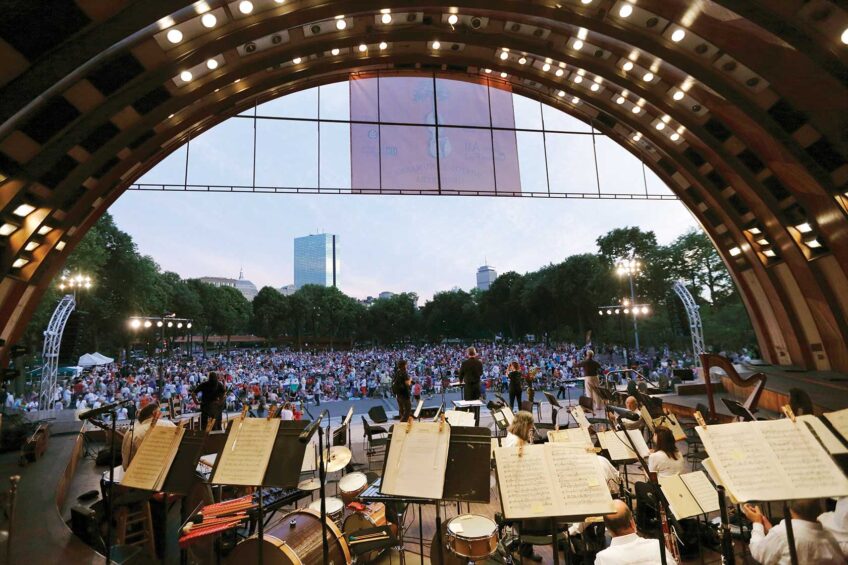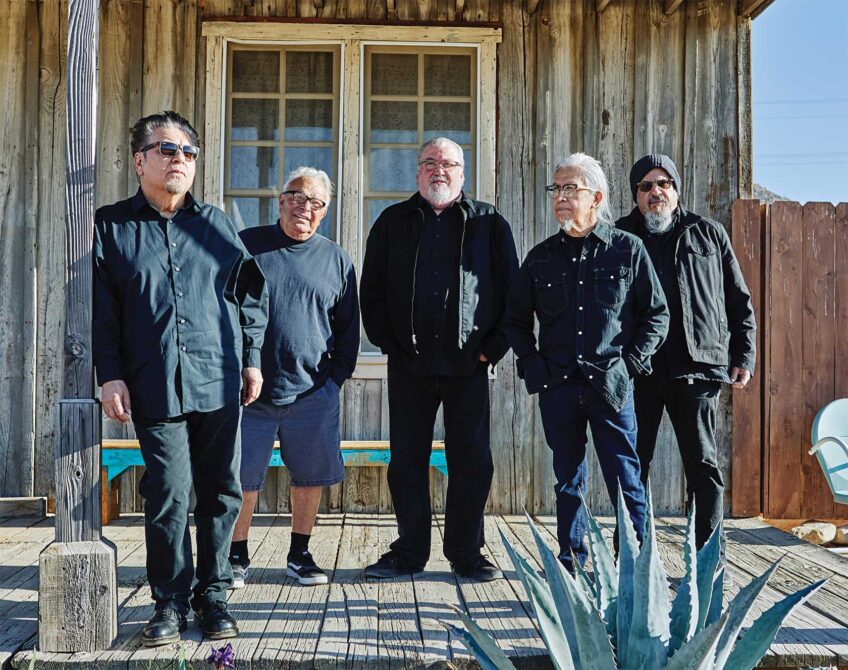Jason Moran pays tribute to jazz pioneer James Reese Europe in multimedia performance

Jazz musicians continuously reinvent their music, responding to one another in the room and across time. Jazz is the music of freedom, and one of its pioneers was composer and conductor James Reese Europe (Feb. 22, 1881–May 9, 1919).
Much honored in his lifetime, Europe is seldom in the spotlight today. The composer moved Black musicians and their music beyond juke joints into New York’s top concert halls and dance clubs — and during World War I, to front lines across France.

African American musicians in the 369th Infantry Regiment band led by James Reese Europe. PHOTO: LIBRARY OF CONGRESS
Describing Europe as “one of the seminal Big Bangs in Black music,” pianist, composer and multimedia artist Jason Moran has created what he calls “a meditation on the life and legacy of James Reese Europe.” Released digitally on Jan. 1, 2023, his album, “James Reese Europe and the Harlem Hellfighters: From the Dancehall to the Battlefield,” is also a sensational 90-minute touring performance that the Celebrity Series of Boston presented Friday night at the Berklee Performance Center.
Through spoken word, sublime music, and photographs and films both archival and new, Moran and his ensemble bring Europe “from the dance hall to the battlefield, and back home to you.”
In 1910, Europe founded the Clef Club, the first union for African American musicians, and in 1912, his Clef Club Orchestra became the first African American ensemble to play in Carnegie Hall. As a lieutenant, Europe led the all-Black 369th Infantry, which the French nicknamed “The Harlem Hellfighters” to honor both its combat mettle and its renowned military band.
In her classic, “The Music of Black Americans,” historian Eileen Southern quotes Europe’s reply when urged to perform a bit more Brahms: “’We colored people have our own music that is part of us. It’s the product of our souls; it’s been created by the sufferings and miseries of our race.’”
Onstage at the Berklee Performance Center were Moran on piano and his Big Bandwagon trio partners of 20 years—bassist Tarus Mateen and drummer Nasheet Waits—along with seven horn players: Immanuel Wilkins, alto sax; Jose Davila, tuba; Darryl Harper, flute and clarinet; David Adewumi, trumpet; Brian Settles, tenor sax; Reginald Cyntje, trombone; and Chris Bates, trombone.
Their brass instruments gleamed on an otherwise darkened stage as onscreen images evoked Europe’s Alabama birthplace and showed the 369th Infantry marching through Midtown Manhattan and Moran kneeling at Europe’s grave in Arlington National Cemetery.
Each musician had his own voice within the 15-piece repertoire, which juxtaposed compositions by Europe and his contemporaries with those of his successors, such as hard-bop pianist Geri Allen and avant-garde jazz saxophonist Albert Ayler. The group sampled such pieces as a rag by Europe for dancers Vernon and Irene Castle, with whom he created new, syncopated dance tempos, and blues compositions by W.C. Handy that were favorites of his 369th Infantry band. The stream of rags, soulful reveries, snappy marches, hints of swing, toots, wails, passages of consoling spiritual power and wild, crashing crescendos braided together a continuum of African American music with Europe at its backbone.
Bringing it “back home” was the finale. While portraits of Europe appeared on the screen, the musicians performed a sauntering, infectious melodic phrase by Europe that Moran has expanded into “For James,” his anthem for the composer. Then, putting down their instruments, they gathered around the piano and hummed the tune. Invited by Moran, the audience hummed along too.








